بزرگترین دوندگان تمام دوران ماراتن چه کسانی هستند
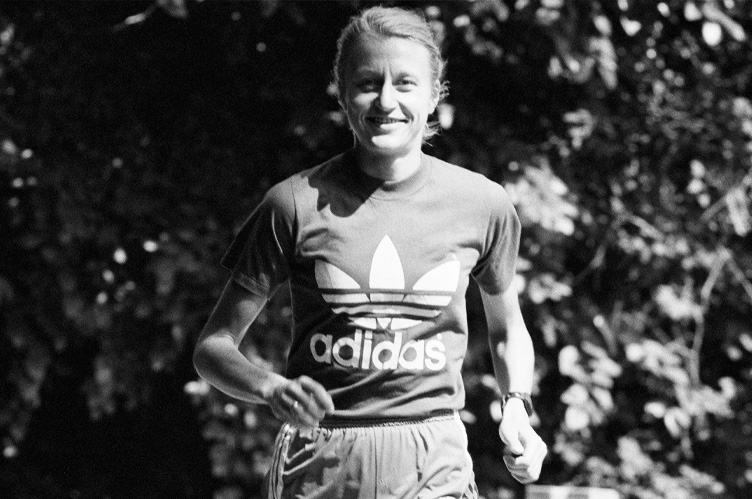 در این مقاله نگاهی خواهیم انداخت به برخی از بزرگترین دوندگان تمام دوران ماراتن که در المپیک، مسابقات قهرمانی جهان و مسابقات مهم شهری دویدهاند.
در این مقاله نگاهی خواهیم انداخت به برخی از بزرگترین دوندگان تمام دوران ماراتن که در المپیک، مسابقات قهرمانی جهان و مسابقات مهم شهری دویدهاند.
از پیشگامانی مانند آبِبه بیکیلا و تگلا لوروپه گرفته تا الیود کیپچوگه، گرته ویتز و غیره.
لیست پادشاهان و ملکههای ماراتن شامل تعدادی از بزرگترین ستارگان طول تاریخ دو استقامت میشود.
از دارندگان مدال طلای المپیک، قهرمانان ماراتن جهانی و رکورد داران جهان گرفته تا برندگان مهمترین مسابقات شهری.
در رشته دو میدانی زمان و نفرات اول بسیار با اهمیت هستند و ماراتن پر آنهاست.
 اما بهترینهای ماراتون چه کسانی هستند؟
اما بهترینهای ماراتون چه کسانی هستند؟
به نظر شما چه پارامترهایی در این بحث همیشگی موثرند؟
نگاهی میاندازیم به موفقترین دوندگان، آمار و رکوردهای آنها.
در ادامه برخی از برترین دوندگان مرد و زن تاریخ ماراتن را بررسی خواهیم کرد.
مسافت ۴۲.۲ کیلومتری (۲۶.۲ مایل).

Men
الیود کیپچوگه (Eliud Kipchoge)
بدون هیچ قید و شرطی الیود کیپچوگه بزرگترین دونده ماراتن تمام دورانها محسوب میشود.
کیپچوگه تنها مردی است که هر دو رکورد جهانی رسمی و غیررسمی ماراتن را در اختیار دارد.
او در ۲۵ سپتامبر ۲۰۲۲ در سن ۳۷ سالگی رکورد رسمی جدیدی به مدت ۲ ساعت و ۱ دقیقه و ۹ ثانیه را به ثبت رساند تا رکورد جهانی مردان را جابجا کند. الیود با این کار رکورد جهانی خود را (۲ ساعت و ۱ دقیقه و 3۹ ثانیه) که در سپتامبر ۲۰۱۸ ثبت شده بود، شکست.
هیچ مرد دیگری در ماراتن به مرز رکورد دو ساعت که او در سال ۲۰۱۹ در مسابقات غیر رسمی ثبت کرد، نزدیک نشده است.
این اسطوره کنیایی سومین مرد در تاریخ است که دو عنوان قهرمانی ماراتن المپیک را به نام خود ثبت کرده و قصد دارد در بازیهای پاریس ۲۰۲۴ به سومین قهرمانی خود هم برسد.
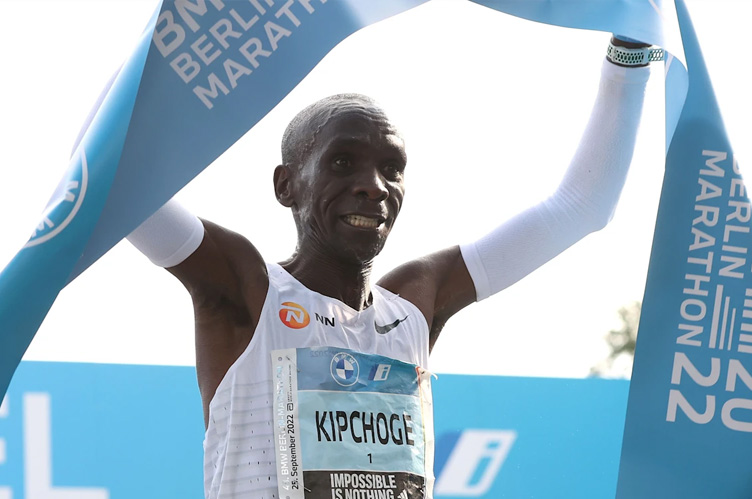
دیگر شاهکارهای باورنکردنی او شامل رکوردی است که طی 7 سال و 11 مسابقه شکسته نشد. کیپچوگه، قهرمان ماراتن شیکاگو 2019، همچنین سه بار برنده ماراتن لندن و برلین شده است.
فهرست دستاوردهای این مرد ۳۸ ساله همچنان در حال افزایش است.
هایلی گبرسلاسی (Haile Gebrselassie)
هایلی گبرسلاسی یکی از بزرگترین دوندگان دو استقامت در تاریخ محسوب میشود که عناوین قهرمانی و رکوردهای جهانی زیادی را در مسابقات دو و میدانی کسب و ثبت کرده است.
این قهرمان دو دوره دوی بیش از ۱۰ هزار متر، نخستین بار در سال ۲۰۰۲ در مسابقات دوی ماراتن لندن شرکت کرد و سوم شد.
اما مرد اتیوپیایی بیشترین موفقیتش در برلین بود، جایی که او پنج بار در مسابقه شرکت کرد، چهار بار برنده شد و دو بار رکورد جهان را شکست.
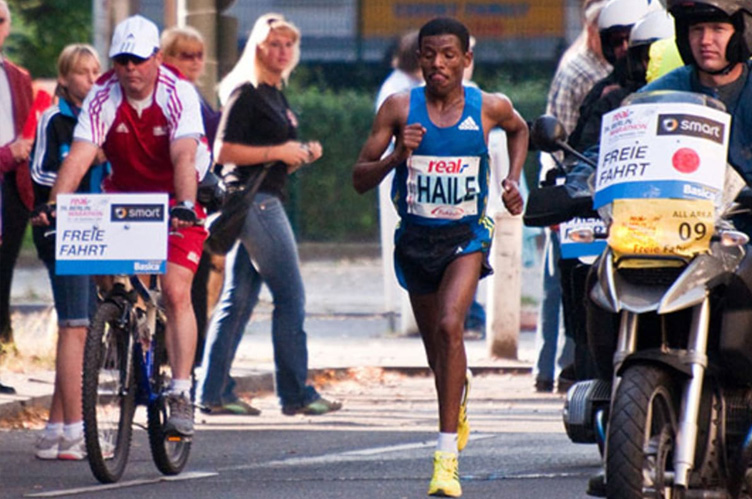 هایلی از میان نزدیک به ۳۰ رکورد رسمی و غیر رسمی که در طول ۲۳ سال فعالیت خود شکسته، رکورد ماراتن را ارزشمند ترین رکورد خود توصیف کرد.
هایلی از میان نزدیک به ۳۰ رکورد رسمی و غیر رسمی که در طول ۲۳ سال فعالیت خود شکسته، رکورد ماراتن را ارزشمند ترین رکورد خود توصیف کرد.
آببه بیکیلا (Abebe Bikila)
آببه بیکیلا یکی از پیشگامان دوی ماراتن بود. در المپیک ۱۹۶۰ رم، این مرد اتیوپیایی پابرهنه، روی سنگفرشهای جادههای رم دوید تا هم به مدال طلا و هم به رکورد جهانی دست یابد.
این اولین باری بود که یک آفریقایی سیاهپوست در مسابقات ۴۲.۱۹۵ کیلومتری مقام اول را کسب میکرد.
پس از “بزرگترین ماراتن در 64 سال تاریخ المپیک”، بیکیلا اولین دوندهای شد که با کسب یک طلای دیگر در 1964 توکیو، دو ماراتن المپیک را برنده شد.
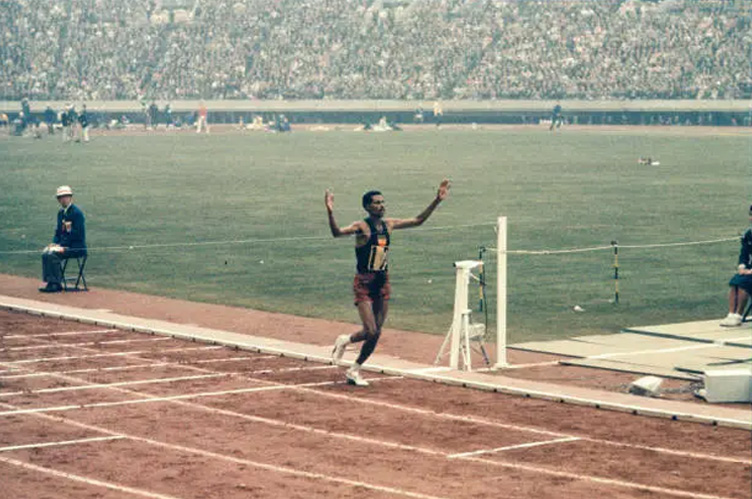 این یک رکورد جهانی دیگر بود. این بار او کفش پوشیده بود.
این یک رکورد جهانی دیگر بود. این بار او کفش پوشیده بود.
فهرست رکوردهای جهانی از آن زمان تاکنون چندین بار بازنویسی شده است اما رکورد او در ۱۹۶۰ رم هنوز در کتاب رکوردهای جهانی گینس پا برجاست: ” رکورد سریع ترین دوی ماراتن با پاهای برهنه در بازیهای المپیک ۱۹۶۰ رم ایتالیا در ۱۰ سپتامبر ۱۹۶۰، ۲ ساعت و ۱۵ دقیقه و ۱۶.۲ ثانیه است.”
والدمار سیرپینسکی، ساموئل وانجیرو (Waldemar Cierpinski, Samuel Wanjiru) و سایرین
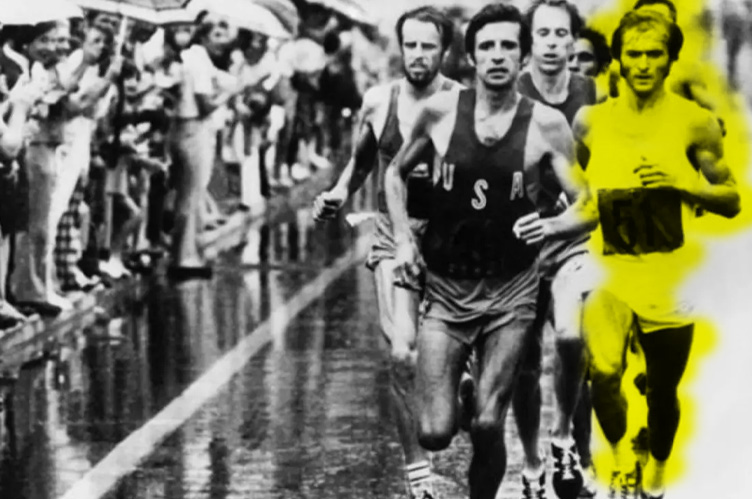 والدمار سیرپینسکی که مانند بیکیلا دو مدال طلای ماراتن المپیک دارد را از یاد نبریم. او نیز مانند دو دونده اتیوپیایی در اولین المپیک خود در مونترال ناشناخته بود.
والدمار سیرپینسکی که مانند بیکیلا دو مدال طلای ماراتن المپیک دارد را از یاد نبریم. او نیز مانند دو دونده اتیوپیایی در اولین المپیک خود در مونترال ناشناخته بود.
این مرد اهل آلمان شرقی با پیروزی در اولین مسابقه دو ماراتن المپیک خود، همه را شگفت زده کرد و با موفقیت از عنوان قهرمانی المپیک خود در مسابقات ۱۹۸۰ مسکو دفاع کرد.
گزیهنده آبرا (Gezahegne Abera) اولین کسی است که هم در مسابقات جهانی و هم در المپیک قهرمان شد. این مرد اتیوپیایی در 2000 سیدنی و در مسابقات جهانی ۲۰۰۱ به مدال طلا دست یافت.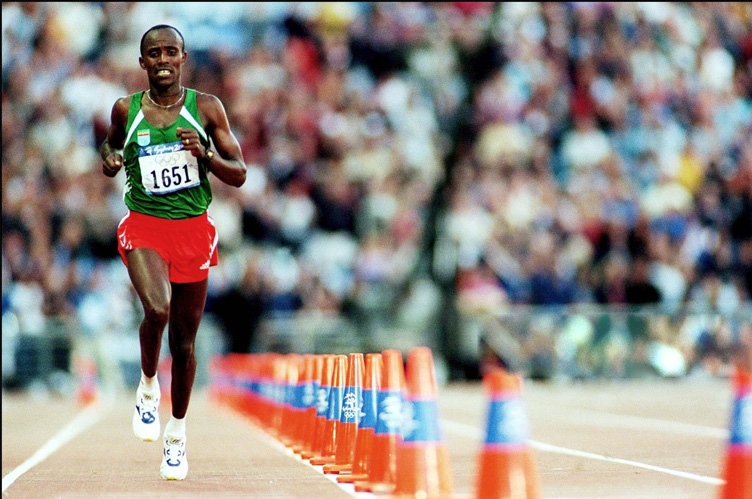
ساموئل وانجیرو (Samuel Wanjiru) را فراموش نکنیم!
او اولین کنیایی بود که عنوان قهرمانی ماراتن المپیک را به دست آورد و این کار را در پکن با ثبت زمان رکورد 2 ساعت و 6 دقیقه و 32 ثانیه انجام داد که هنوز هم به عنوان رکورد المپیک باقی مانده است.
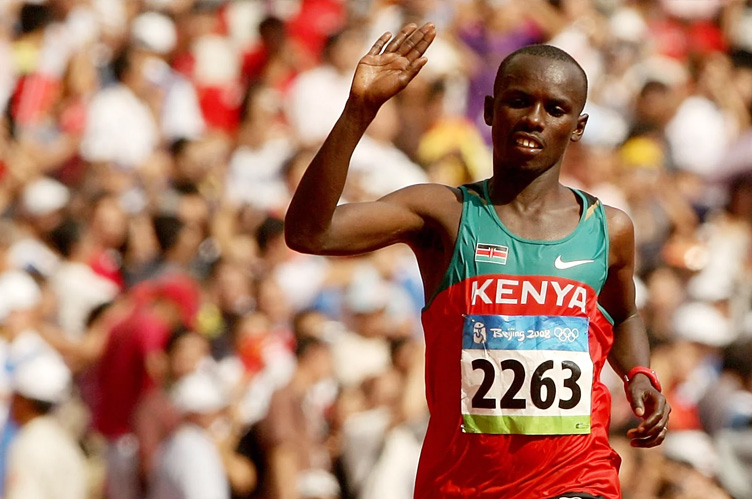 کسب مدال طلای ۲۰۰۸ پکن در 22 سالگی نیز او را به جوان ترین قهرمان ماراتن المپیک که از سال ۱۹۳۲ تغییر نکرده بود تبدیل کرد.
کسب مدال طلای ۲۰۰۸ پکن در 22 سالگی نیز او را به جوان ترین قهرمان ماراتن المپیک که از سال ۱۹۳۲ تغییر نکرده بود تبدیل کرد.
او همچنین در سال ۲۰۱۹ برنده هر دو ماراتن لندن و شیکاگو شد.
همچنین جیم پیترز (Jim Peters)، دونده بریتانیایی که در دهه ۱۹۵۰ چهار بار رکورد جهان را شکست و اولین کسی بود که ماراتن را زیر 2 ساعت و 20 دقیقه دوید.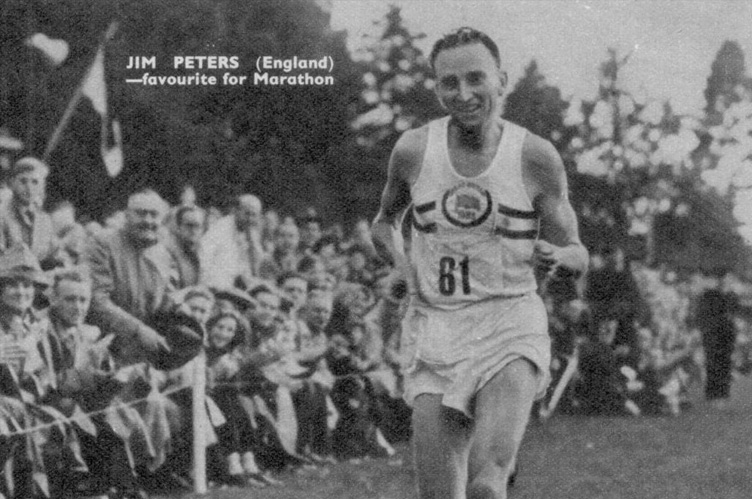
کنیاییهای بیشتری نیز در این فهرست قرار دارند:
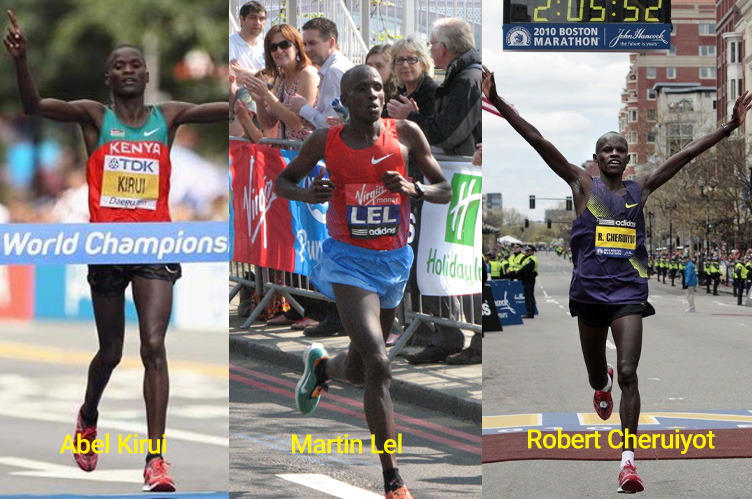
آبل کیروی (Abel Kirui)، برنده متوالی مسابقات قهرمانی جهان در سالهای ۲۰۰۹ و ۲۰۱۱، مارتین لیل (Martin Lel)، سه بار برنده ماراتن لندن و قهرمان دو ماراتن نیویورک بین سالهای ۲۰۰۳ و ۲۰۰۸، و رابرت چریوت (Robert Cheruiyot)، رکورد دار سابق جهان و چهار بار قهرمان ماراتن بوستون.
Women
کاترین ندربا (Catherine Ndereba)
کاترین ندربا به مقام اسطورگی رسید. سالها پس از آخرین مسابقهاش، این زن کنیایی به دلیل سابقه و موفقیتهایی که در دوران ماراتن خود به دست آورد، هنوز به عنوان «کاترین ندربای کبیر» شناخته میشود.
ثبات و فرم بدنی عالی او در طول مسیر ماراتن برای بیش از یک دهه بیرقیب بود.
او دو بار قهرمانی ماراتن جهان (۲۰۰۳ و ۲۰۰۷)، دو مدال نقره المپیک در 2004 آتن و 2008 پکن، دو بار قهرمانی ماراتن شیکاگو و چهار بار قهرمانی ماراتن بوستون را در کارنامه خود دارد.
یکی از این قهرمانیها در سال ۲۰۰۱ همراه با شکستن رکورد جهانی بود.
روزا موتا (Rosa Mota)
اولین دونده پرتغالی که مدال طلای المپیک را به دست آورد، رزا موتا در ماراتن زنان در 1988 سئول بود.
سپس موتا اولین زنی شد که با اضافه کردن مدال برنز در 1984 لس آنجلس به کارنامه خود توانست چندین مدال ماراتن المپیک را به دست آورد.
این دونده دارنده سه مدال طلای ماراتن اروپا، اولین زنی بود که همزمان قهرمان اروپا، جهان و المپیک شد.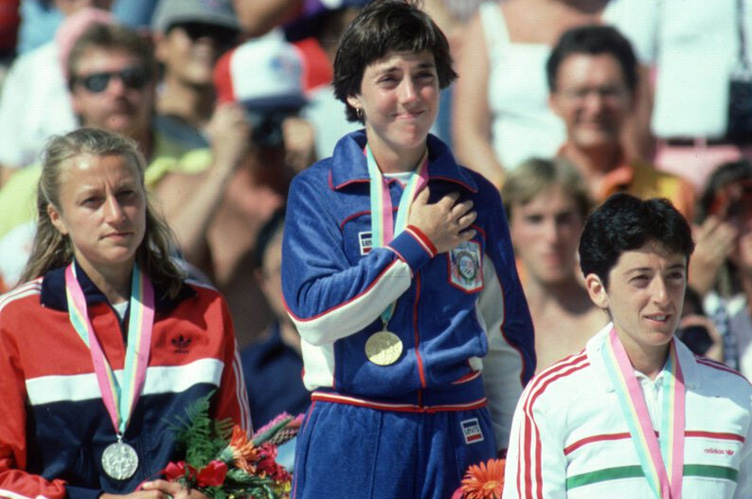
گرت ویتز (Grete Waitz)
فهرست ماراتن زنان باید شامل گرت ویتز، اولین زن در تاریخ باشد که موفق شد ماراتن را در کم تر از دو ساعت و نیم به پایان برساند و رکورد پیشین را دو دقیقه جابجا کند.
این دونده ماراتون نروژی رکورد جهانی خود را در ماراتن 1978 شهر نیویورک به ثبت رساند، اگرچه بعدها متوجه شدند که این مسیر ۱۵۱ متر کمتر از مسافت ماراتون کامل بوده.
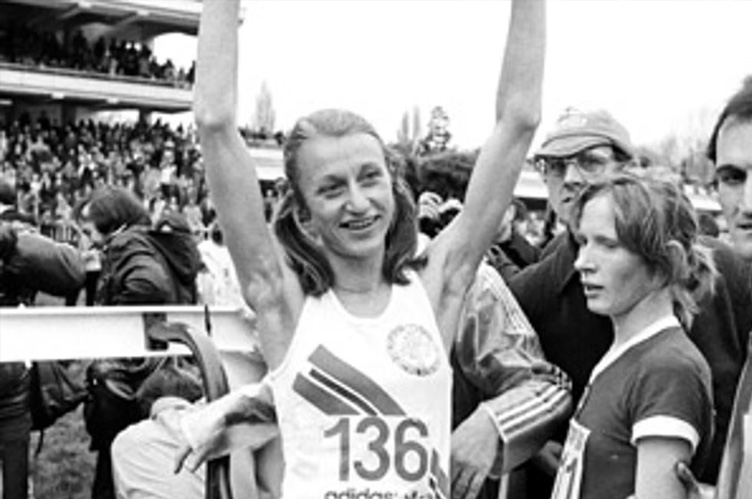
او با ۹ بار شرکت در این مسابقه و قهرمان شدن در همه آنها عظمت خود را به اثبات رساند.
وی همچنین دو بار در ماراتن لندن برنده شد که رکورد جهانی ۲: ۲۴: ۲۵ را در سال ۱۹۸۶ ثبت کرد، به علاوهی به دست آوردن ۱۲ پیروزی در ماراتنهای اصلی.
دارنده مدال نقره المپیک ۱۹۸۴ علاوه بر پنج عنوان قهرمانی جهان در مسابقات دوی کراسکانتری، عنوان قهرمانی دوی ماراتن جهانی را نیز به دست آورد.
تگلا لوروپه (Tegla Loroupe)
تگلا لوروپه با تعداد زیادی مقام اولی، قهرمان بعدی ماست. این اسطوره کنیایی اولین زن آفریقایی بود که رکورد جهانی ماراتن در سال ۱۹۹۸ را به نام خود ثبت کرد و به مدت سه سال آن را در اختیار خود داشت.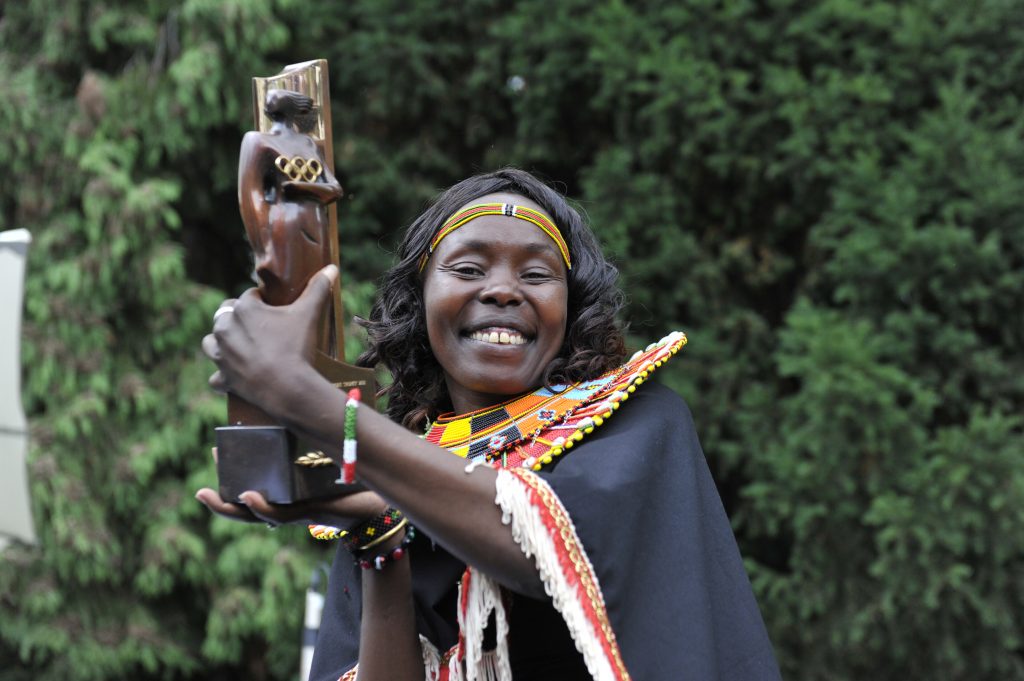
این پیشتاز ماراتن که اولین ماراتن بزرگ خود را در نیویورک دوید، در مسابقه سال ۱۹۹۴ پیروز شد و دوباره به اولین زن آفریقایی تبدیل شد که در صدر یک مسابقه جادهای آمریکایی قرار میگیرد. او دو بار ماراتن نیویورک سیتی را با قهرمانی به پایان رساند و در لندن، برلین و رم نیز پیروز شد.
رادکلیف، کوسگی و… (Radcliffe, Kosgei)
یکی دیگر از اسطورههای ماراتن، پائولا رادکلیف (Paula Radcliffe)، رکورددار سابق زنان در مسابقات ۲۰۰۳ لندن است که ۱۶ سال در این رقابتها حضور داشت.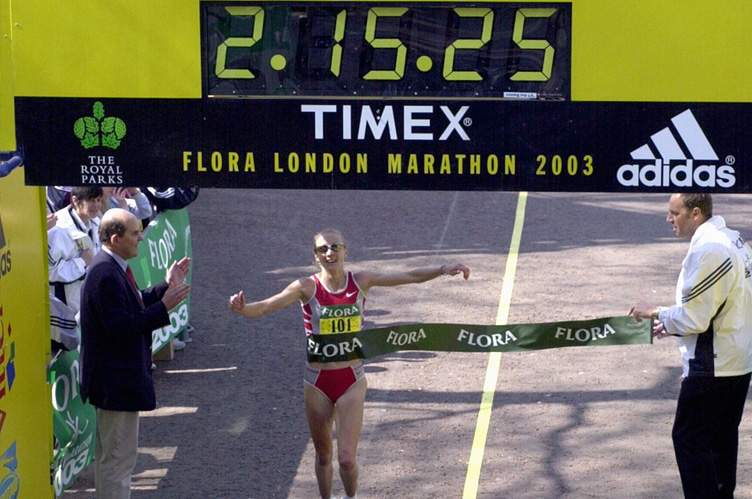
این دونده مشهور بریتانیایی سه بار برنده ماراتن لندن و نیویورک سیتی شد و در سال ۲۰۰۲ بر سکوی قهرمانی ماراتن شیکاگو ایستاد.
رکورد جهانی ردکلیف توسط بریجید کوسگی (Brigid Kosgei) کنیایی، دارنده مدال نقره المپیک ۲۰۲۰ توکیو شکسته شد.
کوسگی در ماراتن 2019 شیکاگو دومین رکورد جهانی ۲: ۱۴: ۰۴ را به نام خود ثبت کرد که هنوز هم سریع ترین زمان ماراتن ثبت شده توسط یک دونده زن است.
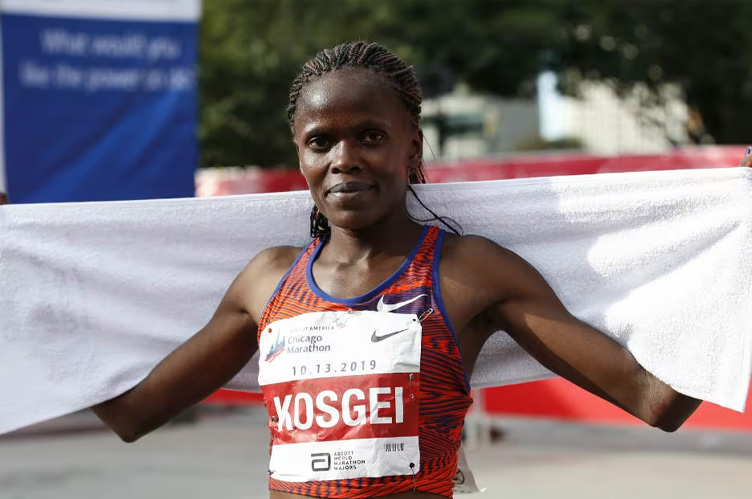
در همان سال او جوان ترین برنده ماراتن لندن شد، مسابقهای که دو بار برنده آن شده است.
کوسگی همان مسیر هم وطن بزرگ خود ماری کیتانی (Mary Keitany) را دنبال میکند (ماری کیتانی رکورددار سابق جهان، که هنوز سریع ترین زمان را برای مسابقه زنان در اختیار دارد).
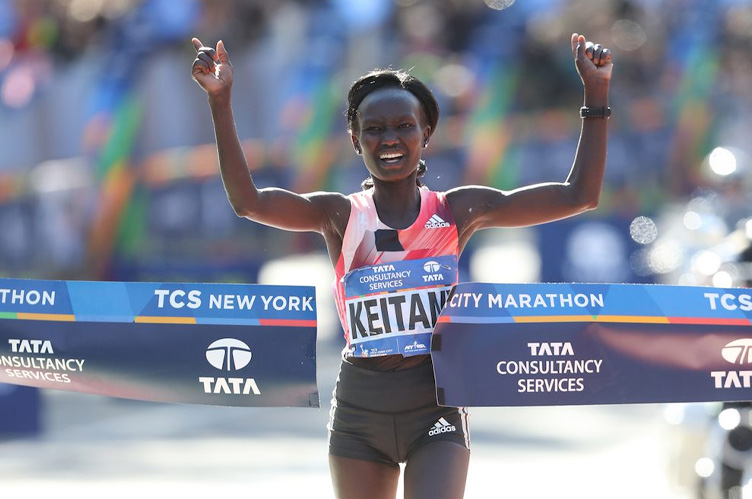 او همچنین چهار بار قهرمان ماراتن نیویورک و سه بار برنده لندن است.
او همچنین چهار بار قهرمان ماراتن نیویورک و سه بار برنده لندن است.
ادنا کیپلاگات (Edna Kiplagat)، دارنده دو مدال طلای ماراتن جهانی که هنوز در ۴۲ سالگی با قدرت میدود و به دنبال اضافه کردن نیویورک، بوستون و لندن به پیروزیهایش است.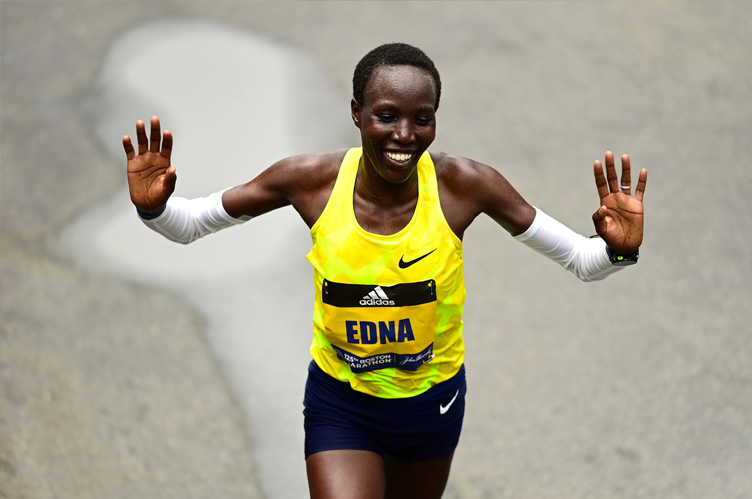
یا در مورد جون بنویت (Joan Benoit)، برنده المپیک ۱۹۸۴ لس آنجلس نظرتان چیست؟
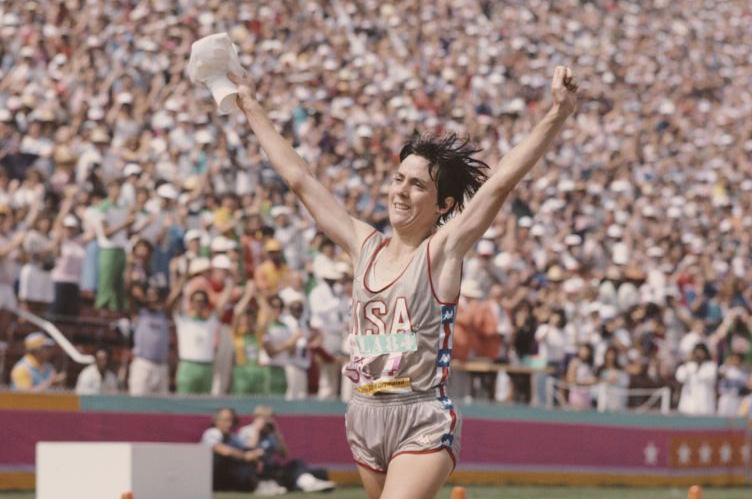 انتخاب سختی است…
انتخاب سختی است…
Cr: olympics.com
|


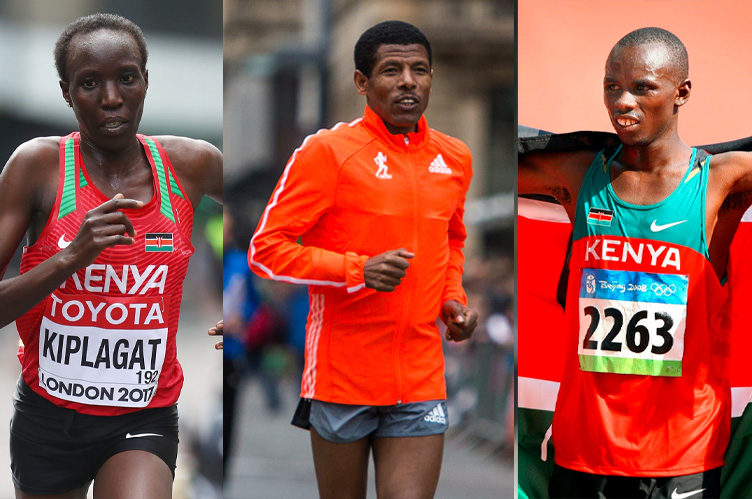
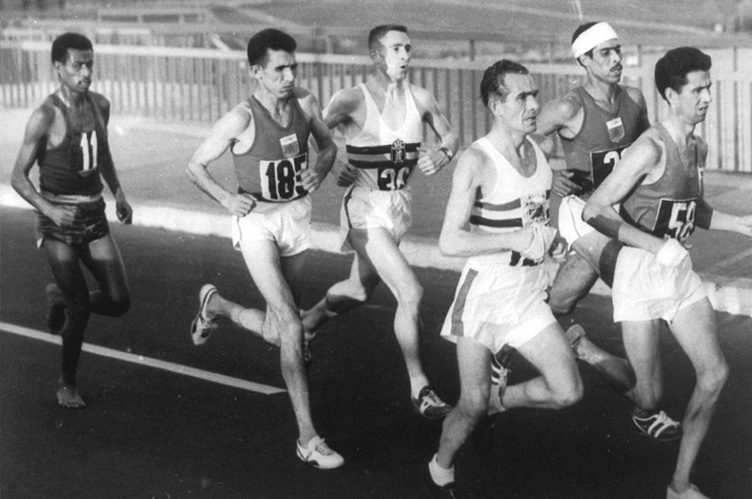 اما بهترینهای ماراتون چه کسانی هستند؟
اما بهترینهای ماراتون چه کسانی هستند؟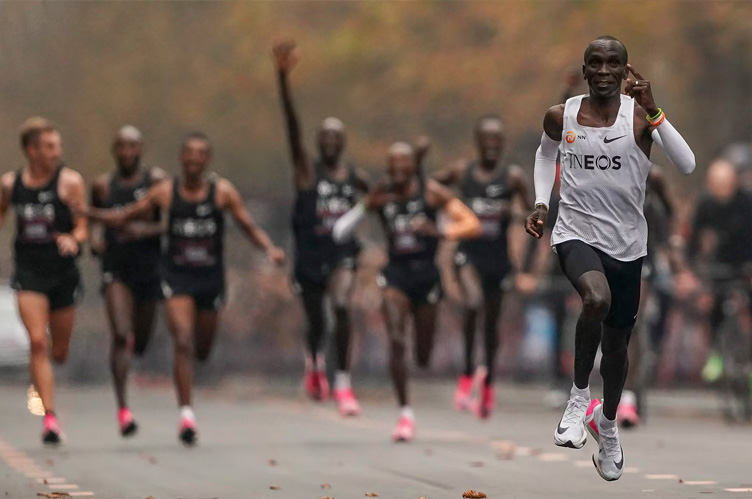
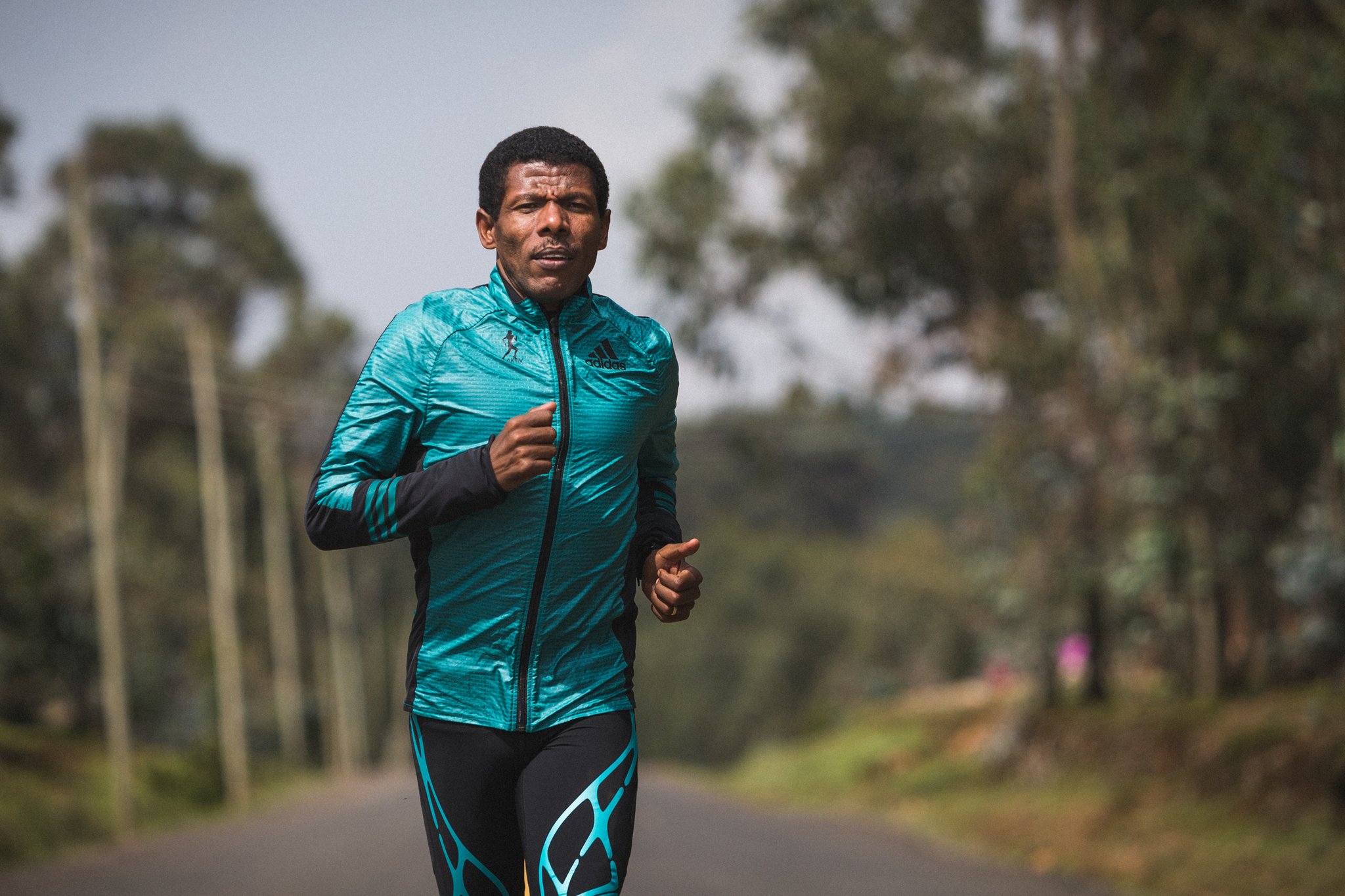
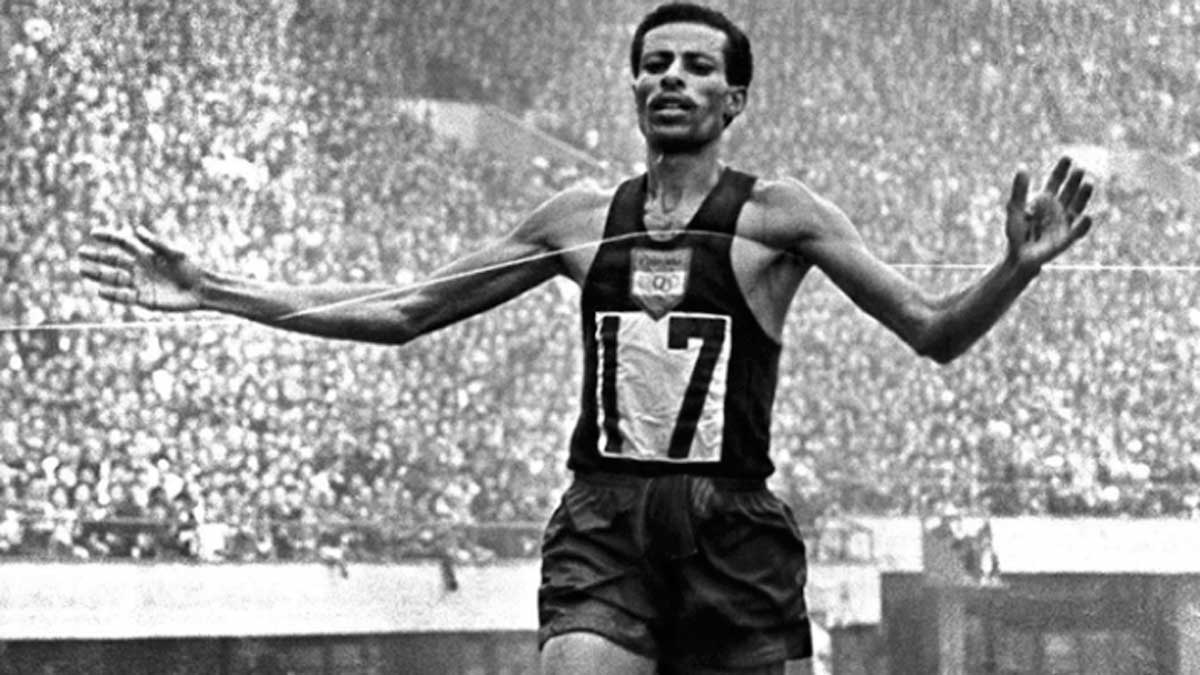
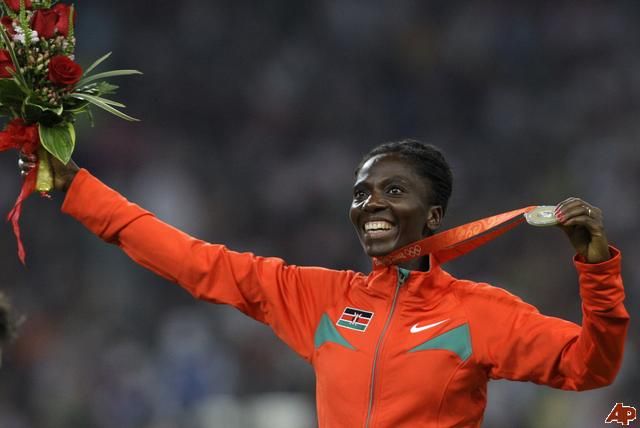
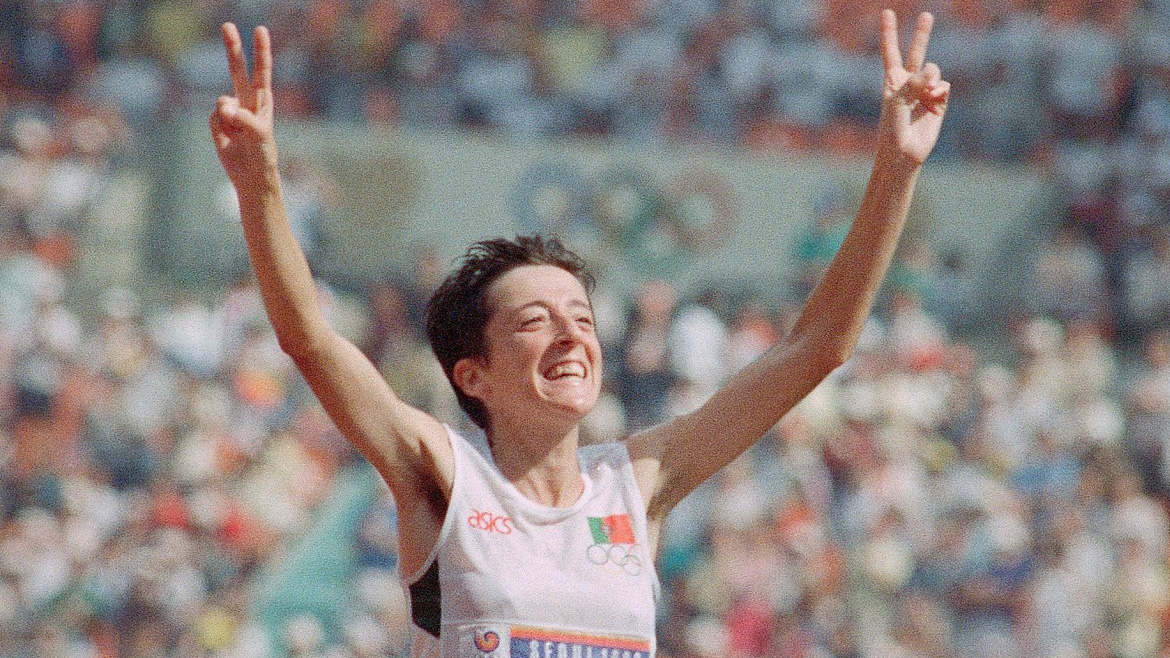
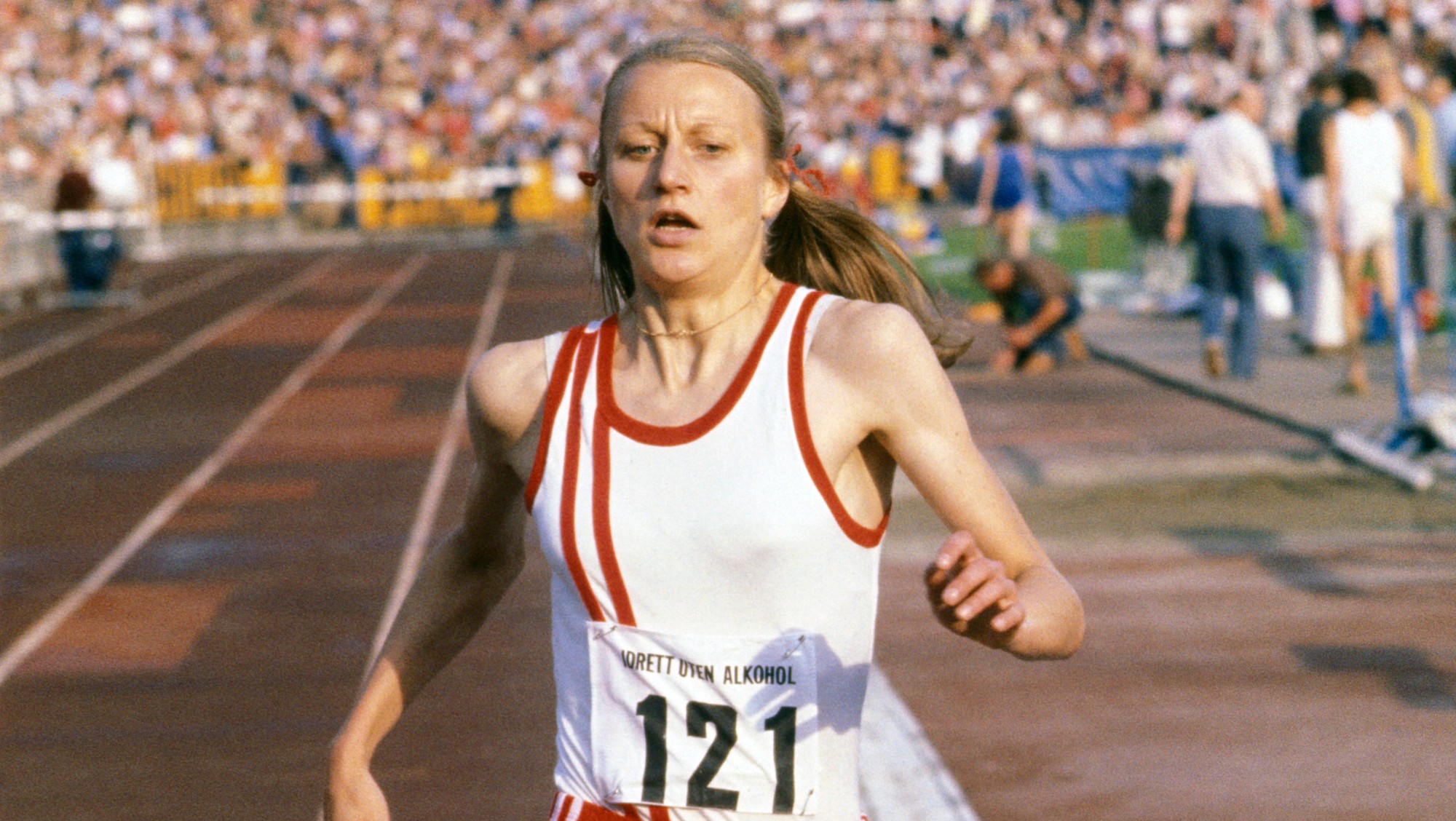


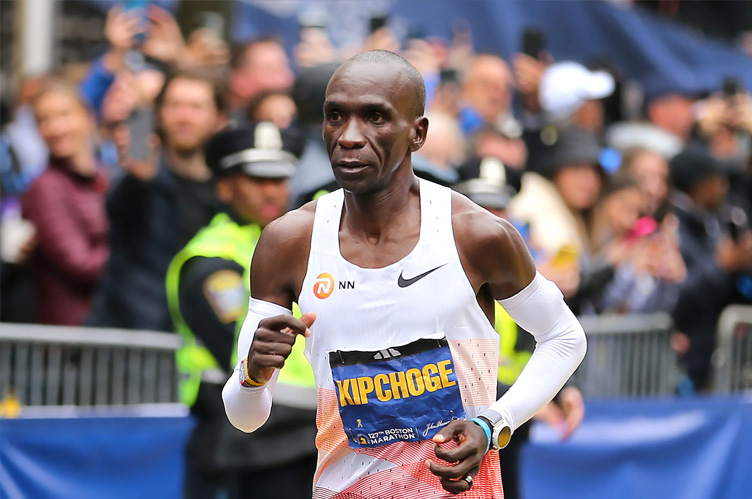
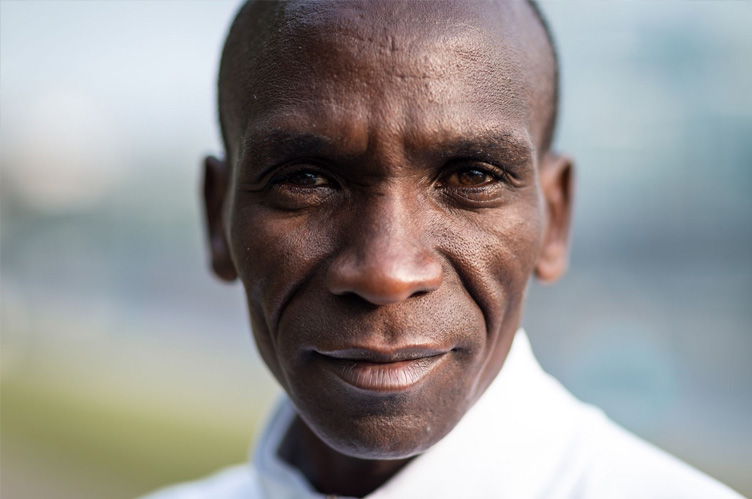
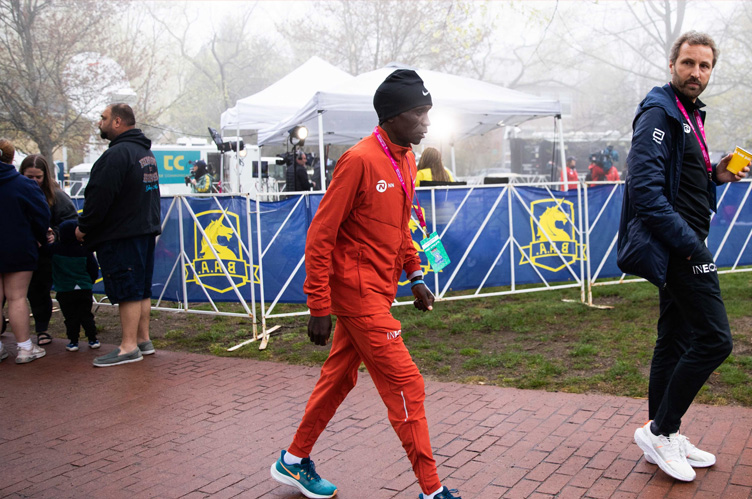 From that statement, it’s impossible to say whether Kipchoge battled any specific issues during the race.
From that statement, it’s impossible to say whether Kipchoge battled any specific issues during the race.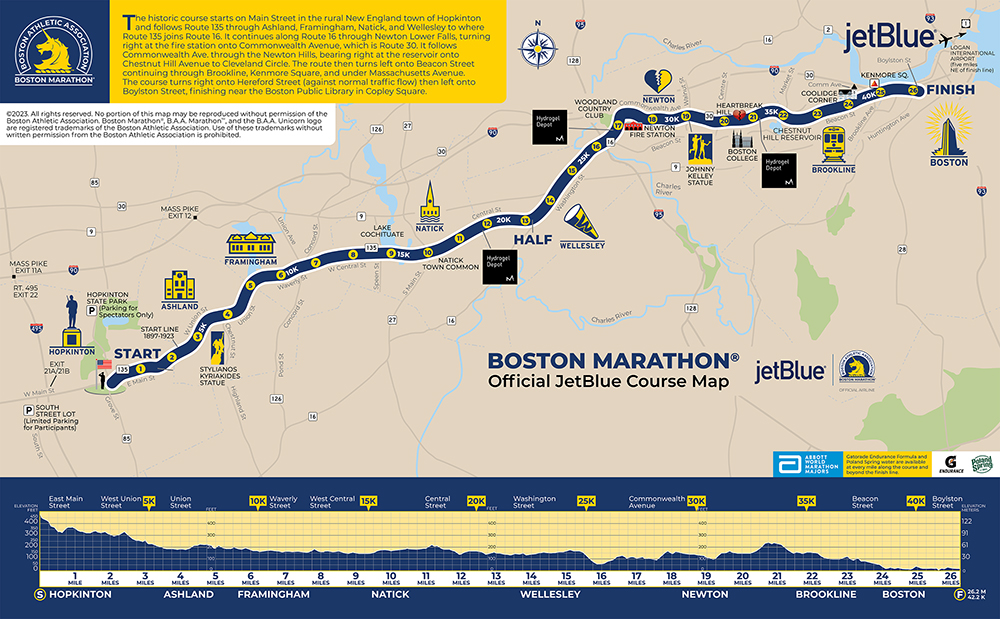
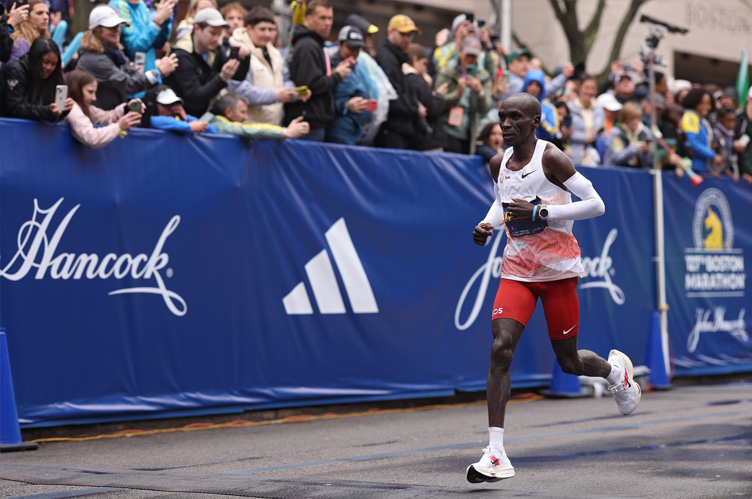
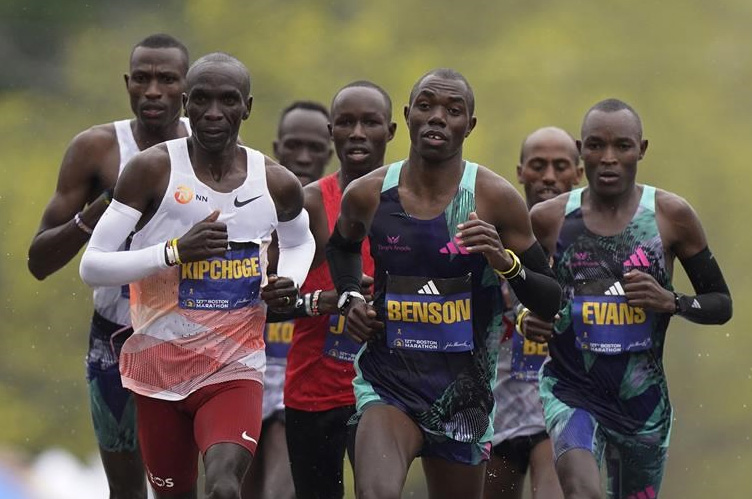 Finally, it’s worth noting that the weather was similar during Kipchoge’s last marathon loss
Finally, it’s worth noting that the weather was similar during Kipchoge’s last marathon loss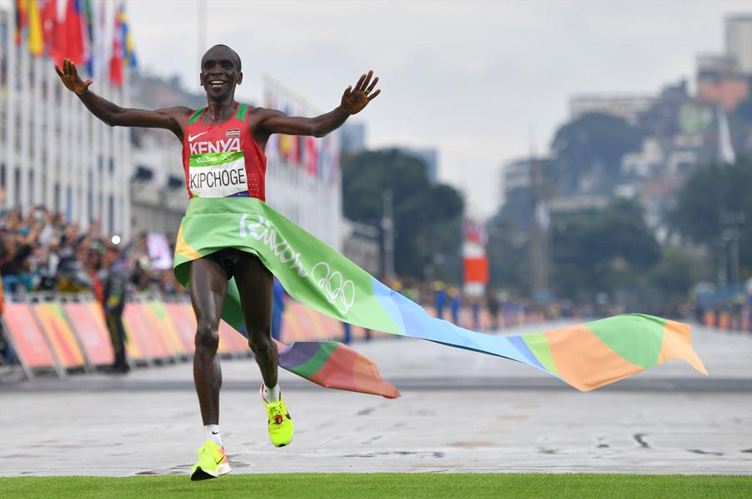 Would a more conservative approach have helped?
Would a more conservative approach have helped?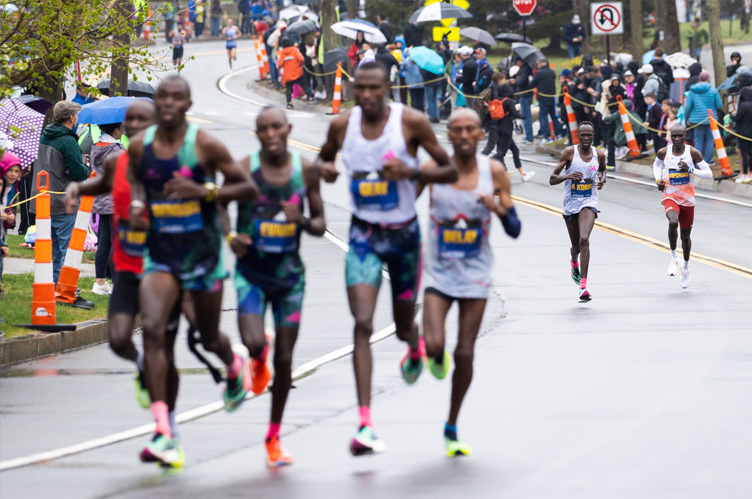 The lead pack was wide, meaning Kipchoge was not the only one facing the wind, but he took more of it than anyone else — certainly more than Chebet, who did a terrific job tucking in and conserving energy in the early stages.
The lead pack was wide, meaning Kipchoge was not the only one facing the wind, but he took more of it than anyone else — certainly more than Chebet, who did a terrific job tucking in and conserving energy in the early stages.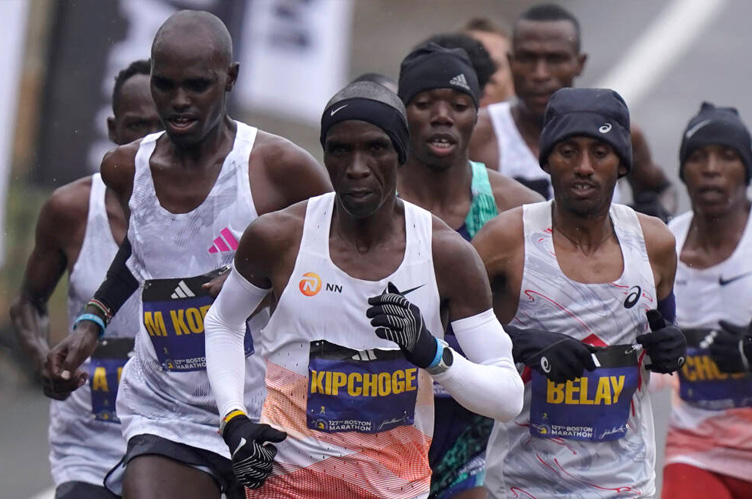 Where does Kipchoge go from here?
Where does Kipchoge go from here?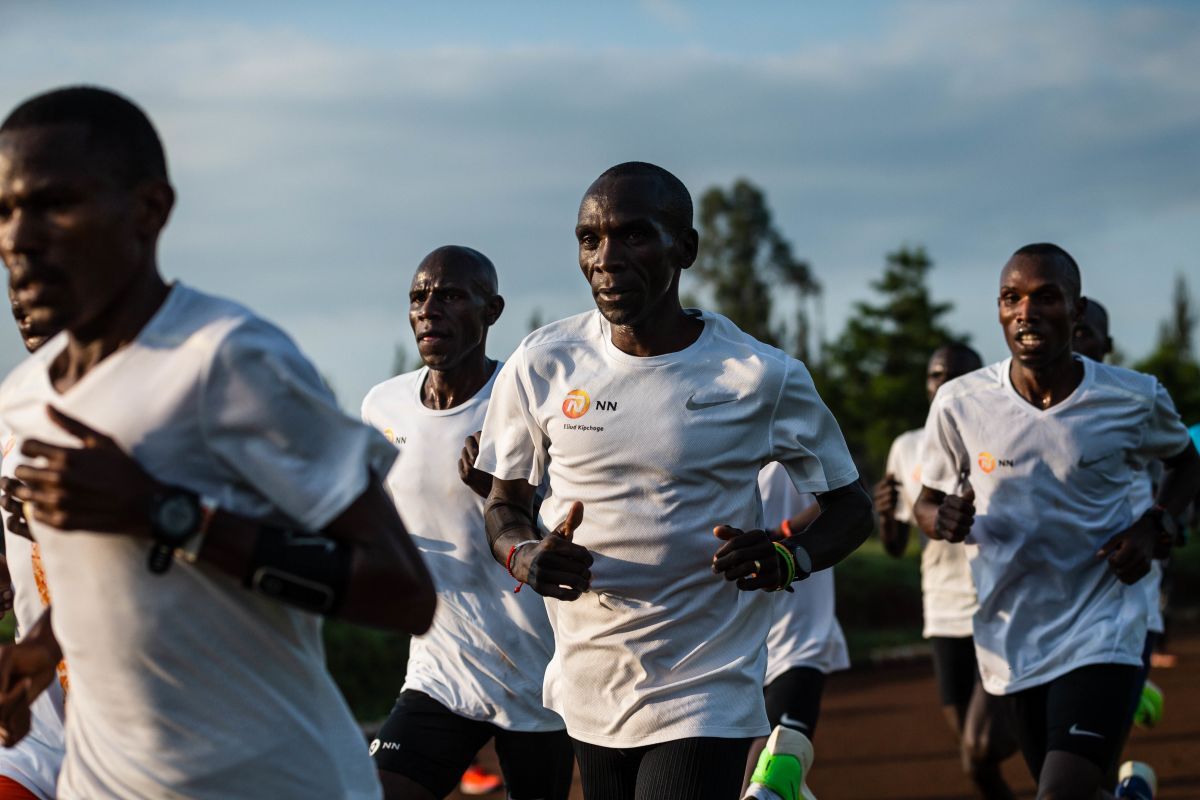 So does Kipchoge head to New York, even after his struggles today in Boston (the course that most closely mimics NY’s hills and bridges)?
So does Kipchoge head to New York, even after his struggles today in Boston (the course that most closely mimics NY’s hills and bridges)?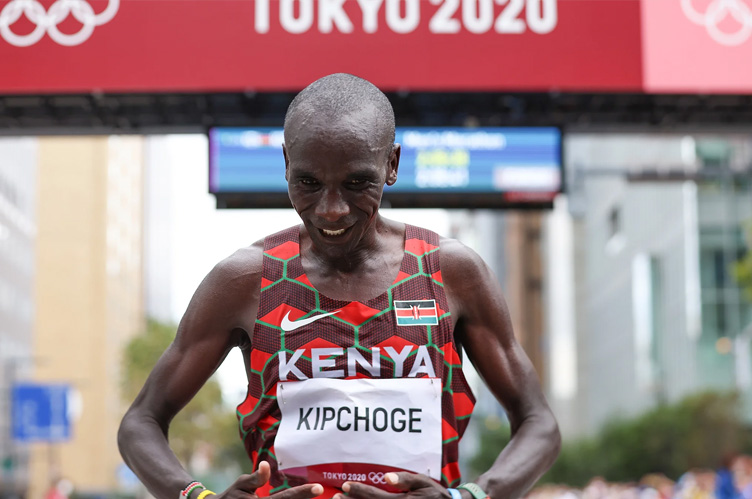 These decisions could have major consequences on Kipchoge’s quest for a third Olympic gold medal in 2024. Kipchoge has enough credit in the bank that he’d likely be on the Olympic team with a win at any 2024 spring marathon.
These decisions could have major consequences on Kipchoge’s quest for a third Olympic gold medal in 2024. Kipchoge has enough credit in the bank that he’d likely be on the Olympic team with a win at any 2024 spring marathon.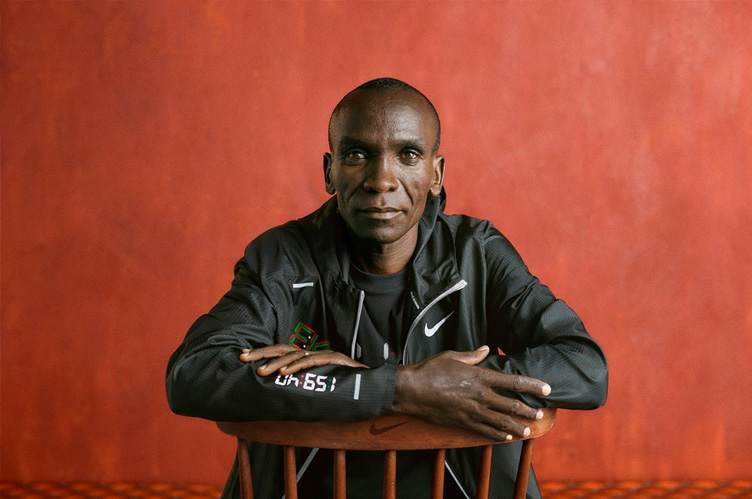
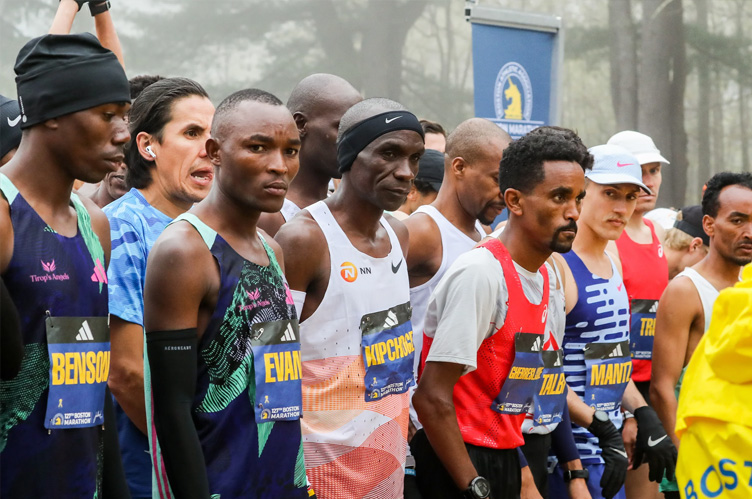
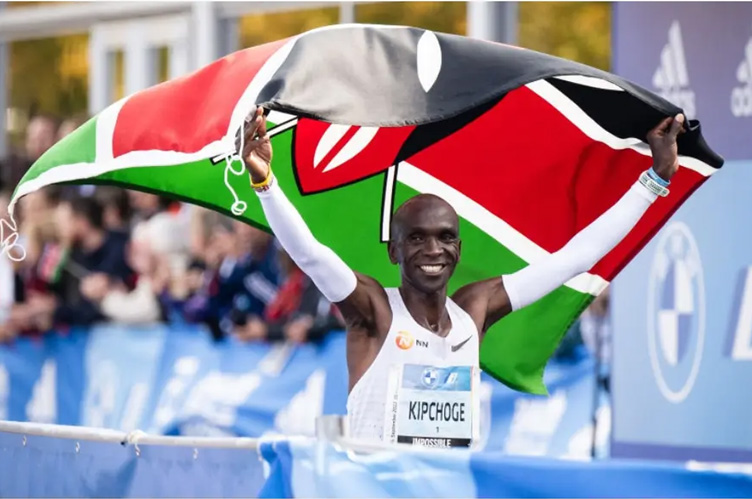
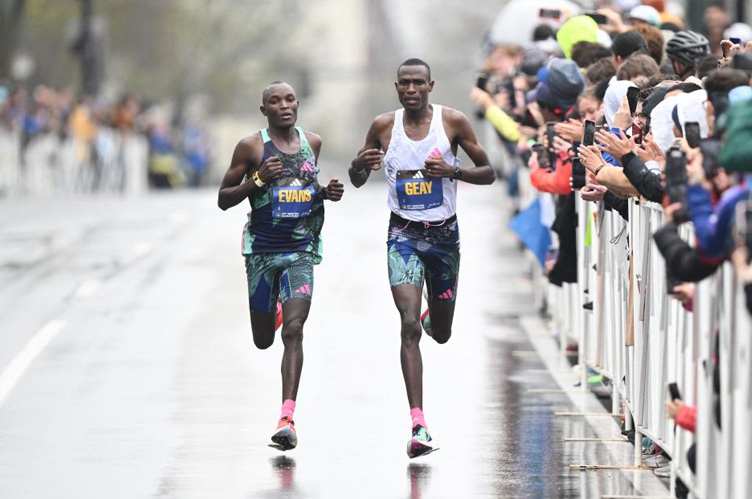
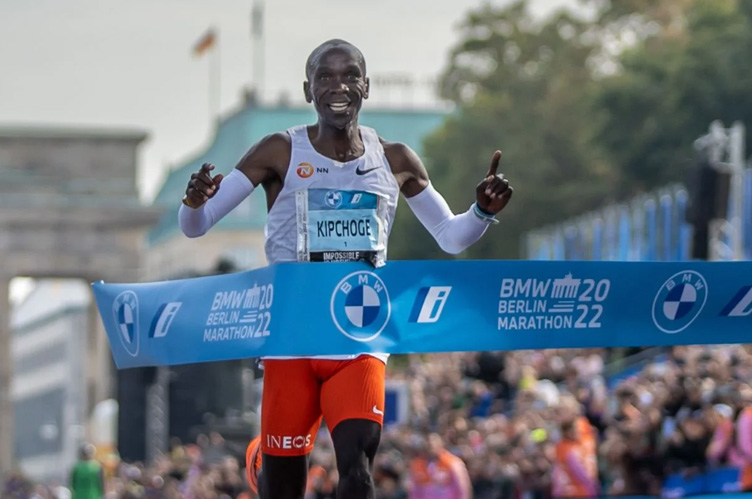 But that won't be Kipchoge's only problem. Any records set at the Boston Marathon are not recognisable by World Athletics.
But that won't be Kipchoge's only problem. Any records set at the Boston Marathon are not recognisable by World Athletics.